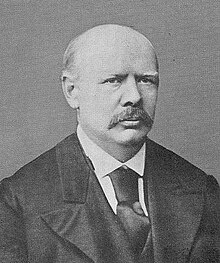Rudolf Westphal
Appearance

Rudolf Westphal (July 3, 1826 – July 10, 1892), German classical scholar.
Life
He was born at Obernkirchen in Schaumburg.
He studied at Marburg and Tübingen, and was professor at Breslau (1858–1862) and Moscow (1875–1879). He subsequently lived at Bückeburg, and died at Stadthagen in Schaumburg-Lippe on 10 July 1892.
Westphal was a man of varied attainments, but his chief claim to remembrance rests upon his contributions on Greek music and metre.
His chief works are:
- Griechische Metrik (3rd ed., 1885-1889)
- System der antiken Rhythmik (1865)
- Hephaestion's De metris enchiridion (1866)
- Aristoxenus of Tarentum (translation and commentary, 1883-1893, vol. ii. being edited after his death by F Saran)
- Die Musik des griechischen Altertums (1883)
- Allgemeine Metrik der indogermanischen and semitischen Volker (1892)
He made translations of Catullus (1870) and of Aristophanes' Acharnians (1889), in which he successfully reproduced the Dorisms in Low German.
Sources
- This article incorporates text from a publication now in the public domain: Chisholm, Hugh, ed. (1911). "Westphal, Rudolf". Encyclopædia Britannica. Vol. 28 (11th ed.). Cambridge University Press.
